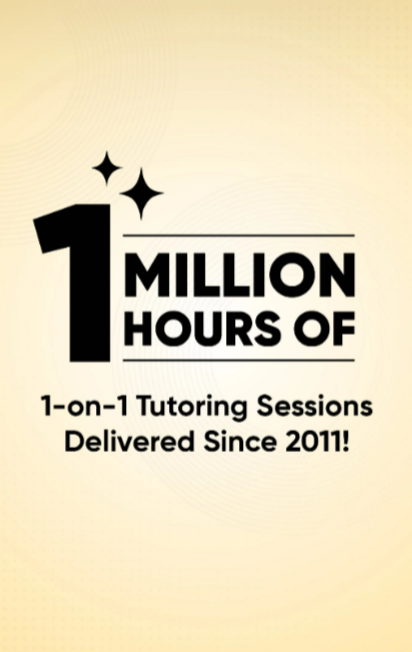How to find the best Algebra tutor for your needs
Finding the right Algebra tutor can make all the difference when you’re struggling with equations, variables, or graphing. Whether you’re a student aiming to ace a test or a parent helping your child succeed, the process requires some thought. This guide breaks it down into clear steps, so you can confidently choose an Algebra tutor who fits your unique needs. Let’s dive into what matters most.

How to decide that you need an Algebra tutor
Algebra can feel overwhelming with its mix of numbers and letters. A good tutor turns that confusion into clarity. They help you grasp concepts like linear equations or quadratic functions at your own pace. Beyond just passing a class, an Algebra tutor builds skills you’ll use in higher math or even everyday problem-solving. Knowing why you need one—whether it’s better grades, test prep for the SAT, or filling knowledge gaps—helps narrow your search.
Decide between online or in-person tutoring
Your first choice is how you want to learn. Online Algebra tutors offer more flexibility. You can study from the comfort of your home, often at lower rates, with access to digital tools such as video calls and digital whiteboards.
In-person tutors, give a hands-on feel—and is great if you focus better doing it face-to-face. Think about your schedule and comfort. If you’re juggling extracurriculars, an online Algebra tutor might save time. If you’re local to a tutor, meeting up could boost accountability.
Look for experience and qualifications
Not every tutor is equal. Check their background. A strong Algebra tutor should know the subject inside out—look for someone with a math-related degree or teaching experience. Ask if they’ve helped students with topics like factoring polynomials or solving systems of equations. Experience with standardized tests (think ACT or GCSE) is a bonus if that’s your goal. Don’t just trust a fancy bio—request references or proof of past success.
Match teaching style to your learning
Everyone learns differently. Some thrive with step-by-step explanations, while others need visuals like graphs drawn out. When picking an Algebra tutor, ask how they teach. Do they break down complex ideas simply? Can they adjust if you’re stuck? A tutor who matches your style—say, explaining slope-intercept form with real examples—keeps lessons engaging. If possible, try a short session to test the fit.
Set a budget aside
Cost matters. Algebra tutors charge anywhere from $20 to $100 an hour, depending on location, expertise, and format. Online options often lean cheaper, while in-person might climb higher in big cities. Decide what you can afford, but don’t skimp on quality for a few bucks. Look for value—someone who saves you hours of frustration is worth it. Many tutors offer package deals or trial lessons, so ask upfront.
Check availability and scheduling
Timing can make or break your progress. The best Algebra tutor won’t help if they’re booked when you’re free. Confirm their hours match yours—especially if you’re cramming for a test like the GRE. Online tutors often have wider availability across time zones, while local ones might stick to after-school slots. Be clear about how often you need sessions, whether weekly or biweekly, to stay on track.
Read reviews and ask for recommendations
Word of mouth cuts through the noise. Look for reviews on tutoring platforms or ask friends, teachers, or classmates for leads. A great Algebra tutor will have feedback praising their patience or knack for explaining exponents.
Focus on specific learning goals
Be clear about what you need. Are you tackling Algebra 1 basics like order of operations, or diving into Algebra 2 with logarithms? Tell potential tutors your goals—mastering a chapter, boosting your GPA, or prepping for an AP exam. A tutor who’s worked with those exact topics can target your weak spots, saving time and effort. Vague help won’t cut it; specificity gets results.
Test their communication skills
A tutor’s ability to explain counts as much as their knowledge. During a first chat or trial, see if they make sense. Can they simplify a tricky concept like rational expressions without jargon? Good Algebra tutors listen, adapt, and keep you from feeling lost. If they rush or confuse you, move on. Clear communication builds confidence—key to mastering math.
Explore group vs. one-on-one tutoring
Most assume tutoring means solo sessions, but group options exist. One-on-one Algebra tutoring gives personal attention—ideal for tackling individual struggles like inequalities. Group settings, often cheaper, work if you learn well with peers and don’t need constant focus. Weigh what suits you. Solo tends to be pricier but tailored; groups can motivate but split the tutor’s time.
Take action and start today
Finding the best Algebra tutor isn’t just about research—it’s about starting. List your needs: online or local, budget, goals. Then reach out to a few candidates. Many offer free intros, so test the waters. Don’t wait until you’re drowning in homework or a big test looms. The right tutor turns Algebra from a headache into a win, and the sooner you act, the faster you’ll see progress.
Final thoughts on choosing wisely
Picking an Algebra tutor is about fit—skills, style, and schedule. Focus on what clicks for you, not just the flashiest option. With the right person guiding you, those equations won’t feel so intimidating. Start simple, ask questions, and trust your gut. You’ve got this—and soon, Algebra will too.

 United States
United States United Kingdom
United Kingdom Australia
Australia Canada
Canada Middle East
Middle East Europe
Europe